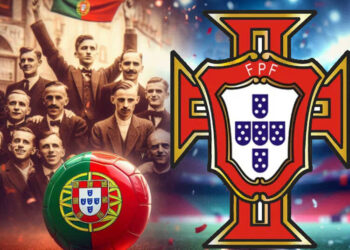Introduction
When one speaks of football legends, Eusébio da Silva Ferreira, often simply known as Eusébio, stands out as one of the most illustrious figures in the sport. His name is synonymous with the golden era of Portuguese football, and his contributions to both Benfica and the Portugal national team have cemented his legacy as one of the greatest footballers of all time. This blog delves into the life, career, and enduring impact of the man affectionately known as the “Black Panther.”
Early Life and Beginnings
Eusébio was born on January 25, 1942, in Lourenço Marques (now Maputo), Mozambique, a then-Portuguese colony. From an early age, his talent was evident. Playing barefoot on the streets, Eusébio honed his skills, displaying extraordinary speed, dribbling, and goal-scoring ability. His talent did not go unnoticed, and by the age of 15, he was already making waves in local football circles.
Journey to Benfica
In 1961, Eusébio made a life-changing move to Portugal, joining Benfica, one of the country’s most prestigious clubs. The transition wasn’t smooth, as there were attempts by other clubs, notably Sporting CP, to sign him. However, Benfica secured his transfer, and this decision would forever alter the landscape of Portuguese football.
Rise to Stardom
Eusébio’s impact at Benfica was immediate. Known for his explosive pace, powerful shots, and incredible goal-scoring instinct, he quickly became the centerpiece of the team. One of his most notable achievements came in the 1961-62 European Cup (now the UEFA Champions League) final. Eusébio scored twice, helping Benfica to a stunning 5-3 victory over Real Madrid, a match that highlighted his burgeoning talent on the European stage.
Golden Years at Benfica
Over his illustrious career at Benfica, Eusébio amassed numerous titles and accolades. He won 11 Primeira Liga titles, 5 Portuguese Cups, and was the European Cup’s top scorer on three occasions. His goal-scoring prowess was unmatched, leading him to win the Ballon d’Or in 1965 and finishing as the top scorer of the 1966 World Cup.
Portugal’s 1966 World Cup Heroics
Eusébio’s crowning achievement on the international stage came during the 1966 FIFA World Cup in England. Portugal had never qualified for the World Cup before, and Eusébio played a pivotal role in their historic run to the semi-finals. His unforgettable performances, including a four-goal haul against North Korea in the quarter-finals, made him the tournament’s top scorer with nine goals. Portugal eventually finished third, and Eusébio was awarded the Golden Boot, solidifying his status as a global football icon.
Legacy and Influence
Eusébio’s influence extended far beyond his goal-scoring records. He was a symbol of excellence, sportsmanship, and humility. His dedication to the game and his country inspired countless young footballers in Portugal and around the world. Even after retiring, Eusébio remained an ambassador for Benfica and Portuguese football, often seen at matches and events, encouraging new generations of players.
Personal Life and Character
Eusébio was not only celebrated for his skills on the pitch but also for his character off it. Known for his humility and generosity, he was loved by fans and respected by peers. His life story, from a young boy in Mozambique to a global football legend, is a testament to his determination and talent.
Awards and Recognition
Throughout his career, Eusébio received numerous awards and honors, including being named one of FIFA’s 100 greatest living players in 2004. In Portugal, he was awarded the Grand Cross of the Order of Prince Henry and the Grand Cross of the Order of Merit, recognizing his immense contributions to the nation.
Conclusion
Eusébio passed away on January 5, 2014, leaving behind a legacy that transcends football. He remains an enduring symbol of Portuguese excellence and a benchmark for future generations. His life and career are a reminder of the beauty of football and the power of talent and determination.
Eusébio’s name will forever be etched in the annals of football history, a legend whose story continues to inspire and captivate fans around the world.












